You might have heard terms like ‘gut feeling’ or ‘go with your gut’ which describe our sense of knowing the right answer or approach, or making decisions based on instinct or intuition alone. Where we rely on hardwired behaviour or knowledge that can be called upon without really having to think about it.
Equally, we might experience ‘butterflies in our tummy’ when we’re nervous. Of course, there aren’t any real butterflies inside, we just know that fluttery feeling seems to be located there. And sometimes, we might need to make ‘gut-wrenching’ decisions or even feel ‘sucker punched’ after receiving shocking news.
Gut-brain connection
So why do we have a tradition of describing these sensations in our gut when we know these thoughts and feelings arise in our brains?
It’s because of the brain-gut connection. This is sometimes called the gut-brain axis or mind-gut connection, and it refers to the bi-directional (two-way) communication network that exists between our brains and our gut. In effect, our brain and our gut are constantly in communication with each other and can influence how the other one works.
Isn’t that mind-blowing?!
Understandably, the brain needs to keep tabs on the gut, like it does the rest of the body, because – you know – the brain is in charge! But, as we can see from those well-accepted phrases that explained something before science was equipped to, the gut can also influence how the brain works as evidenced by its impact on our thoughts, feelings and behaviours. Research is uncovering exciting discoveries with increasing speed to understand how the gut can influence the brain and also our mood.
A neuronal ‘superhighway’
The gut brain axis is a two-way connection between our brain and our gut, and it works on two primary levels – a physical connection and a chemical one.
The vagus nerve serves as the main physical ‘superhighway’ that links our brains to our gut. This connection starts in utero with the same tissue type as the origin for both our brain and our gut. As the embryo grows, the brain stays at the top end and the gut slides down to other end with the vagus nerve keeping them both connected.
The gut is our ‘second’ brain
The gut has such an extensive network of neurons, second only to our actual brains, it is often dubbed our ‘second brain’ or gut brain. As opposed to our brain and spinal cord, which collectively are called our ‘central nervous system’, our gut with its neuronal network is referred to as the ‘enteric nervous system’. The central nervous system contains around 100 billion nerve cells or neurons, whilst our enteric nervous system contains around 500 million neurons. Our gut contains 5 times more neurons than our spinal cord alone!
It’s also called our ‘second brain’ because it is capable of acting independently from our actual brain, without the need to receive instructions from the CNS. This means that it can carry out local functions within the gut without the brain having any direct involvement at all.
Chemical messengers
The second type of connection that exists between our gut and brain is chemical, and this too occurs in two ways. The first occurs in the form of chemical messengers our body produces, the main ones being neurotransmitters, but also includes hormones and immune signaling chemicals. The job of neurotransmitters is to move between nerve cells in the brain to signal distant areas of the body to carry out their specific functions. They are how the brain communicates with our body.
Neurotransmitters are involved with our feelings and emotions. For instance, serotonin – the ‘happy’ neurotransmitter – is associated with mood and happiness, and GABA is associated with feelings of calm and relaxation.
But the gut also produces many of the same neurotransmitters as the brain. It does this through specific digestive cells, and also through our gut bacteria which are capable of making these chemicals. In the case of serotonin, for example, 95% of it is actually made in the gut! In our brain, it has a role in mood regulation (whether we are happy or sad) as well as our body clock. But in our gut, it’s responsible for motility (how quickly or slowly food passes through), sensitivity (how likely we can feel gut sensations including pain) and also the secretion of fluids.
Gut microbiome
The other important chemical connection between the brain and the gut is our gut microbiome, or simply put: our gut bacteria. They are capable not only of making neurotransmitters, they also produce chemicals known as ‘short-chain fatty acids’ (SCFA) by fermenting their favourite foods – dietary fibre and resistant starch.
SCFAs include the chemicals butyrate, propionate and acetate, which are also capable of affecting brain function. Butyrate, for example, helps to strengthen the protective barrier between the brain and the rest of the body called the ‘blood-brain barrier’ (BBB). Propionate is capable of affecting appetite regulation by the brain.
A two-way street
If both our gut and our brain can communicate back and forth, and make substances that affect one another, then it’s no surprise that if one area isn’t functioning as it should it can have an effect on the other. That’s why gut issues and psychological ones can go hand-in-hand.
When the gut is working at its best, the mind will follow – and vice versa, when we support our stress levels properly, our digestion works as it should. To improve gut-brain axis for a healthy balanced mood and easy, no-stress digestion, there are three key steps:
1. Address basic digestive function
This involves having an honest appraisal of current digestive system functioning and assessing any functional bowel problems. Are there any particular gastrointestinal symptoms that suggest the GI tract is not in tip-top shape? For instance, if you are constantly running to the loo for number two’s, it could be peristaltic function is running too quickly, causing a loose bowel. Excess gas and bloating and abdominal pain may be as a result of food intolerances or the inability to properly break down some healthy foods properly, or even an imbalance in the balance of gut microbes.
The second factor is understanding the health of the gut barrier – the lining between the ‘tube’ of the digestive tract and the inside of our bodies. This is comprised of a layer of cells and the strength of connection between them, as well as a mucous layer that protects the cells underneath.
When the integrity of this lining is reduced and the gut becomes ‘leaky’, it increases the degree of disharmony within the digestive tract and it can impact the functioning of the brain. It’s important to consider the diet when assessing the health of the gut lining as many of the reasons the gut becomes dysfunctional can be related back to eating the wrong foods.
2. Improve the ‘tone’ of the vagus nerve
‘Vagal tone’ signifies how well the vagus nerve is working. The vagus nerve is predominately associated with the parasympathetic nervous system, the part of the nervous system associated with ‘resting and digesting’ – i.e. the calm and relaxed side of the nervous system. This indicates how well the body can relax. High vagal tone indicates we can initiate a calm, resting state after stress relatively quickly. Whereas low vagal tone suggests we aren’t as able to recover as quickly from stress and that the ‘fight or flight’ or sympathetic nervous system is more highly activated.
There are a number of ways the vagal nerve can be activated to improve its tone, and lucky for us they are all enjoyable! You too can improve your vagus by:
- Slow, deep diaphragmatic breathing
- Singing, chanting or humming
- Exposure to the cold
- Meditation
- Laughter
- Massage
- Exercise
- Supplementing with probiotics and omega 3 fatty acids
3. Support a healthy microbiome
Your microbiome is essentially that collection of microorganisms that reside inside your gut. Its quality and make-up have a massive impact on overall health, for better or for worse. When beneficial species (or good bacteria) predominate, our optimal health is supported. But if gut pathogens (or bad bacteria) are allowed to get the upper hand, then our health can deteriorate over time.
The goal is to support a diverse spectrum of intestinal gut bacteria. To achieve this, you need to understand and avoid the conditions that lead to an unfavourable gut microbial balance, also known as dysbiosis. There are many things that can upset a happy balance of gut microbes – namely medications, alcohol, processed foods, toxins, pesticides or chemical exposure, even stress.
Probiotics are live bacteria that afford an easy way to promote a healthy, balanced microbiome, assuming your beneficial bacteria are able to make it past your stomach acid to reach the colon intact! Spore-based probiotics are revolutionising the probiotic supplement category because they exist in a protected state to survive unfavourable conditions – like they have in the environment for millennia. These hardy probiotics then germinate in the large intestine where they are needed to promote the colonisation of other favourable gut species, and in so doing recondition the gut to the optimal, beneficial balance.
These good bacteria support digestive health in a number of ways:
- They assist with the digestion of foods
- Produce nutrients such as vitamins and antioxidants
- Produce fuel for our cells to create energy
- Keep populations of gut pathogens and yeasts in check
Prebiotic foods, those foods that support the colonisation of beneficial bacteria in the gastrointestinal tract, are another measure that can be used in addition to using probiotic supplements to improve symptoms and ultimately the gut brain connection.
Don’t forget holistic approaches
There are also other ways to support brain and mental health outside of supporting our gut health too. This includes getting plenty of restorative sleep. Stress can also be harmful to the brain long-term so using techniques to manage stress such as mindfulness can also be beneficial. Botanicals too can be useful here to support a healthy nervous system – herbs such as Passionflower, Green Oats, Damiana, Vervain, Schisandra, Skullcap and Lavender are all useful in this regard.




